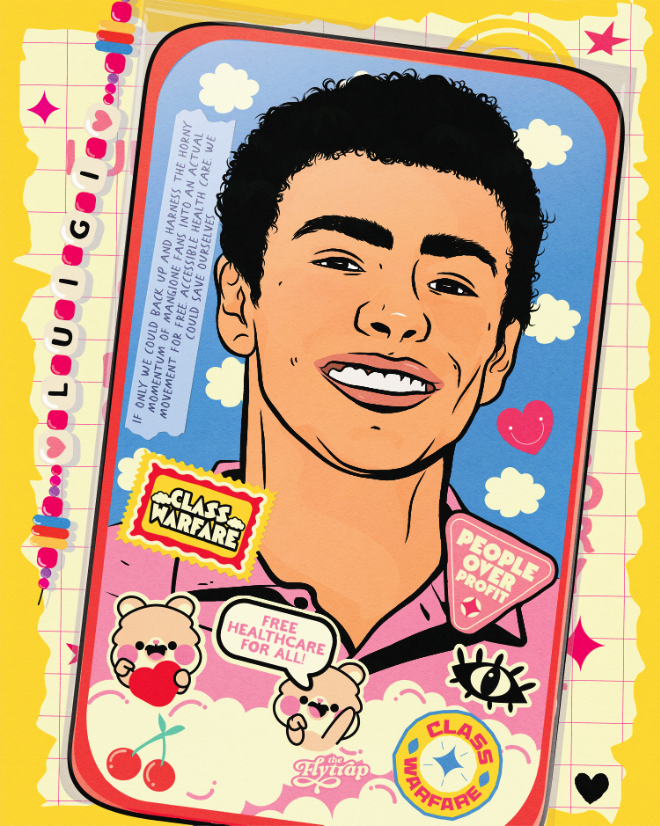Deny, Defend, Depose, Slay: How Luigi Mangione Became a Thirst Trap
Luigi Mangione almost sparked a grassroots rebellion against health insurance companies. Instead, we got more stan culture.

Note from The Flyteam: The Flytrap merch store is now open! Buy a poster from our collection or get dripped out in the latest Flytrap merch.
When I started following “Latinas for Mangione” on Instagram, I expected news on Luigi Mangione’s ongoing federal and state cases, after spending a few months fascinated with Mangione’s alleged murder of United Healthcare CEO Brian Thompson. What I didn’t expect was photos of Mangione as a child, accompanied by weirdly parasocial captions, and videos of him in college with comments about how sexy his voice is.
In a predictable turn of events in late technofascist surveillance capitalism, Mangione’s alleged crime—once understood by much of the public as a response to the inherently exploitative American healthcare system—has become depoliticized. Parasocial fandoms have stripped the assassination of its meaning while unfortunately becoming an essential part in how Mangione is raising funds and public support for his legal defense.

